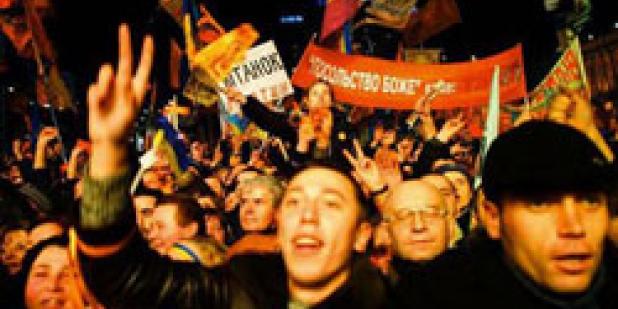Happy Lunar New Year from the USC US-China Institute!
2009 Roundtable on Post-Communism: "Citizenship and Post-Communism"
The East Asian Studies Center at Indiana University presents a roundtable discussion on the politics of rights and changing citizenship regimes in China.

Preparatory Reading Material:
Provocation Statement by Sara Friedman, IU Anthropology, and Padraic Kenney, IU History
Ching Kwan Lee's response
Jan Kubik's response
Madeleine Reeves's response
Schedule:
Public Roundtable
9-12 am
IMU Oak Room
Discussants:
Nick Cullather, IU History
Tim Waters, IU Law
Ellen Wu, IU History
Follow-up faculty-graduate student seminar (also open to the public)
2-4 pm
IMU Oak Room
Format:
A public roundtable is featured in the morning with a follow-up seminar for faculty and graduate students in the afternoon, also open to the public. The roundtable focuses on a question that is circulated in advance to the roundtable panelists. Each panelist prepares a 1000-word statement in response to a brief (150-200 word) “provocation”—a statement and series of questions. This question and brief initial responses by each panelist are posted in advance, so that all who attend the roundtable are familiar with the core question and the positions of the panelists. At the morning panel, the chair will introduce the themes and questions of the panel, the participants, and will then ask two commentators to speak for 10-15 minutes, after which each panel presenter will have 10 minutes to address the questions posed by the commentator and to comment on other papers on that panel. Our practice is to designate as commentators scholars who can broaden the multidisciplinary and comparative reach of the panel rather than people who replicate the expertise of the three main panelists. After this the floor is open for discussion. To encourage continued discussion of these themes in a more informal fashion, we continue the Roundtable in the afternoon. At this session we will ask one of the organizers to summarize the issues raised that morning and then invite the audience to make comments or ask questions of the panelists, allowing for several sets of questions and comments before returning to the main guests. In the past this format has ensured lively participation by our attendees, and graduate students in particular.
Biographical Information about Speakers:
Ching Kwan Lee, Professor of Sociology at the University of California, Los Angeles. She has a Ph.D. in Sociology from the University of California at Berkeley. She is the author of two award-winning books: Gender and the South China Miracle: Two Worlds of Factory Women (1998) and Against the Law: Labor Protests in China's Rustbelt and Sunbelt (2007). She has also edited or co-edited three volumes on, respectively, ethnographies of labor and the workplace, collective memory in China's reform era, and contemporary social activism. Dr. Lee's current work addresses the politics of rights and changing citizenship regimes in China, with a focus on the effects of three major national laws giving citizens labor rights, land rights, and property rights. She examines how ordinary Chinese mobilize legal and extra-legal resources in struggles for citizen rights and how such efforts potentially create new citizenship regimes in China.
Jan Kubik, Associate Professor of Political Science at Rutgers University and Recurring Visiting Professor of Sociology at the Center for Social Studies, Polish Academy of Sciences, Warsaw. His PhD training is in anthropology, from Columbia University. He is the author of two award-winning books: The Power of Symbols against the Symbols of Power: The Rise of Solidarity and the Fall of State Socialism in Poland (1994) and Rebellious Civil Society: Popular Protest and Democratic Consolidation in Poland, 1989-1993 (1999; co-authored with Grzegorz Ekiert). His current research includes a comparative study of civil society and protest politics in four post-authoritarian states in Europe and Asia.
Madeleine Reeves, Research Council UK Fellow at the Centre for Research on Socio-Cultural Change at the University of Manchester. Her doctoral work in anthropology at Cambridge University focused on the lives of workers in the Ferghana Valley, on the border between Uzbekistan and Kyrgyzstan. Currently, she is researching a project entitled Unbecoming citizens: subjectivity and the negotiation of “law” in a Moscow migrant community, which examines the encounter of Central Asian labor migrants with the residence registration system in contemporary Russia.
Co-Sponsors:
Indiana University Russian and East European Institute, Inner Asian and Uralic National Resource Center, Center for the Study of Global Change, East Asian Studies Center
Featured Articles
We note the passing of many prominent individuals who played some role in U.S.-China affairs, whether in politics, economics or in helping people in one place understand the other.
Events
Ying Zhu looks at new developments for Chinese and global streaming services.
David Zweig examines China's talent recruitment efforts, particularly towards those scientists and engineers who left China for further study. U.S. universities, labs and companies have long brought in talent from China. Are such people still welcome?






